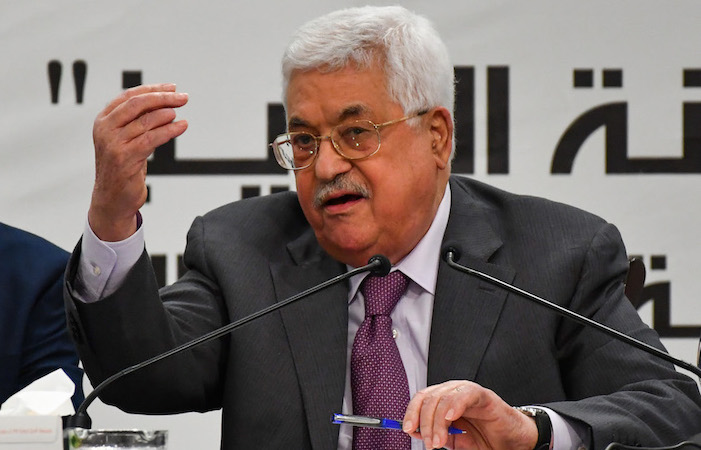‘Palestine’ is Becoming a Member of the International Community
On 15 January 2019 at the United Nations headquarters in New York, President Mahmoud Abbas assumed Palestine’s presidency of the Group of 77 and China – the largest bloc at the UN, which represents 134 countries.
In his speech, Abbas restated the PLO’s position that Israel is the cause of all problems in the Middle East: “The establishment of peace and security in the Middle East will significantly enhance the opportunities for realisation of sustainable and stable development for all countries of the region,” he said. “Regrettably, however, Israel’s continued colonisation and occupation of the State of Palestine undermines our development and capacity for cooperation and coordination and obstructs cohesive future development for all peoples of the region.”
At the same time he used the opportunity to restate Palestine’s ambitious claims which it considers are based on international law: “Palestine is committed to a peaceful solution that brings an end to the occupation and the realisation of the independence of the State of Palestine, with East Jerusalem as its capital, living side by side in peace and security with the State of Israel on the basis of the 1967 borders, and the just resolution of all final status issues, including for the plights of our refugees and prisoners in accordance with the relevant international resolutions.”
Meanwhile, the PLO has also announced plans to push ahead with its bid for ‘Palestine’ to be admitted as a UN member state. The PLO/Palestine applied for UN membership in 2011 but that application has never been determined. Under the UN Charter, a state that is not yet a UN member can be admitted to the UN if it can establish (a) that it is a state; (b) that it is ‘peace loving’; and (c) that it is able and willing to comply with the UN Charter.
The Palestinians know that the US will veto their application for UN membership, but they want to have at least 9 votes in favour to show that only the US veto is preventing them from becoming a full member state. Of the 15 Security Council members (5 permanent members and 10 non-permanent members) 5 current members will almost certainly vote in favour of the admission: China, Indonesia, Kuwait, South Africa, the Russian Federation. 10 of the 15 Security Council members have already recognised the State of Palestine: China, Côte d’Ivoire, Dominican Republic, Equatorial Guinea, Indonesia, Kuwait, Peru, Poland, South Africa, and the Russian Federation.
It is highly doubtful whether ‘Palestine’ constitutes a state under international law, though opinions on this matter in the legal community are divided. And over 130 nations have now recognised ‘Palestine’ as a state. So, politically-speaking, the Palestinians have a lot in their favour.
Under international law a state only exists if (in addition to having a defined population and territory) it has a government that can effectively govern independently of all other states, and can enter into diplomatic relations. Given the Palestinian Authority President Mahmoud Abbas many problems between the PA, Fatah and Hamas, and the PA’s dependence on Israel in so many ways, it is absurd to say the Palestinians have an effective, independent government. Similarly Palestine does not have the capacity to enter into relations with other states and can hardly be called a ‘peace-loving’ state.
So the fact that so many states recognise Palestine as a state shows most political leaders are more concerned about politics than the rule of law.






